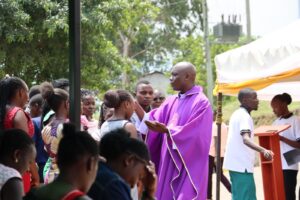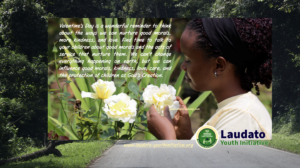By Augustine Bahemuka
Research Editor – Laudato Youth Initiative
Baku, the capital of Azerbaijan, situated on the borderlines of eastern Europe and west Asia, hosted this year’s edition of UN Climate Change Conference of Parties (COP29), which attracted about 40,000 delegates – half of the estimated number of delegates registered at COP28.
Most noticeable among the delegates at COP29 were the IT corporations from across the globe, who led conversations on the interface between climate change and IT technologies, including sustainable IT practices, responsible Artificial Intelligence (AI), climate resilient digital technologies and eco-systems, et cetera.
The moments gearing up to COP29 were characterized by a combination of events, some of which were dramatic. For instance, a pocket of European politicians and NGOs perceived COP29 as an opportunity to challenge the government of Azerbaijan on their international human rights obligations and called for the release of political prisoners. At their defence, Azerbaijan asked the EU to keep off its domestic affairs and focus inward on their own.
Elsewhere, voices arose against COP29 from climate activists fronting various issues. On her part, Caroline Mair-Toby accused COP of persistent failure to address the challenges faced by indigenous communities and small island states, such as New Papua Guinea, which are most vulnerable to climate change shocks, cognizant of their environment-based lifestyles.
Akin to previous events, paradoxical positions on the relevance of COP in driving international climate action were noticeable. There is evidence that climate diplomacy is instrumental in creating spaces for dialogue on climate change and its impact on livelihoods, however,
“it is out of sync with the accelerating pace of climate change”,
which has raised scepticism about COP. Ideally, the big question raised herein pertains drawing strategies of driving both diplomatic pathways and implementation of climate actions, at the same wavelength. Delegations of young people equally shared in the political scepticism hovering over COP29, who did not hesitate to share their frustration in the lack of political resolve to avert the imminent climatic crisis. “You have every right to be angry…,” responded Antonio Guterres, UN General Secretary, “I [too] am angry because we are on the verge of the climate abyss, and I don’t see enough urgency or political will to address the emergency.”
Besides the inevitable controversies, paradoxes and frustrations, most of which are motivated by competing political and national interests of state parties, COP29 was marked a big win for young people: The launch of the Universal NDC Youth Clause, which is COP’s strategic mechanism of driving youth inclusivity in the climate action discourse.
The rationale of the universal youth clause is the recognition of the place of children and youth, who account for over a half of the world’s population, as both stakeholders in the financial pledges made by nationally determined contributions (NDC), and agents of change in climate action. NDC refers to the financial contributions pledged by wealthier states in the Paris Agreement on Climate Change.
The universal youth clause is anchored on three pillars. First, appreciation of the role played by children and youth in climate action; second, collaboration with young stakeholders to implement national climate plans to ensure integration of their perspectives; and lastly, educate children and youth on the impact of climate change to empower the next generation of climate champions in finding sustainable solutions.
The UK went on record as the first country to sign up the universal youth clause and announced their plans of only implementing it, but also
“Collaborate with all partner organizations to implement this work and uphold accountability.”
In conclusion, we find stupendous synergies between COP29 and Laudato Si’ – Pope Francis’ master thesis on the imminent global ecological crisis. The Pontiff offers environmental education of young people as one of the mechanisms of equipping them with the knowledge on the integral relationship between humanity and nature.
He also emphasizes the concept of intergenerational responsibility – which lies at the centre of COP29’s universal youth clause – a bold reminder of our obligation to be good stewards of the environment today so that the generations that come after ours can inherit more habitable, peaceful and greener spaces.














